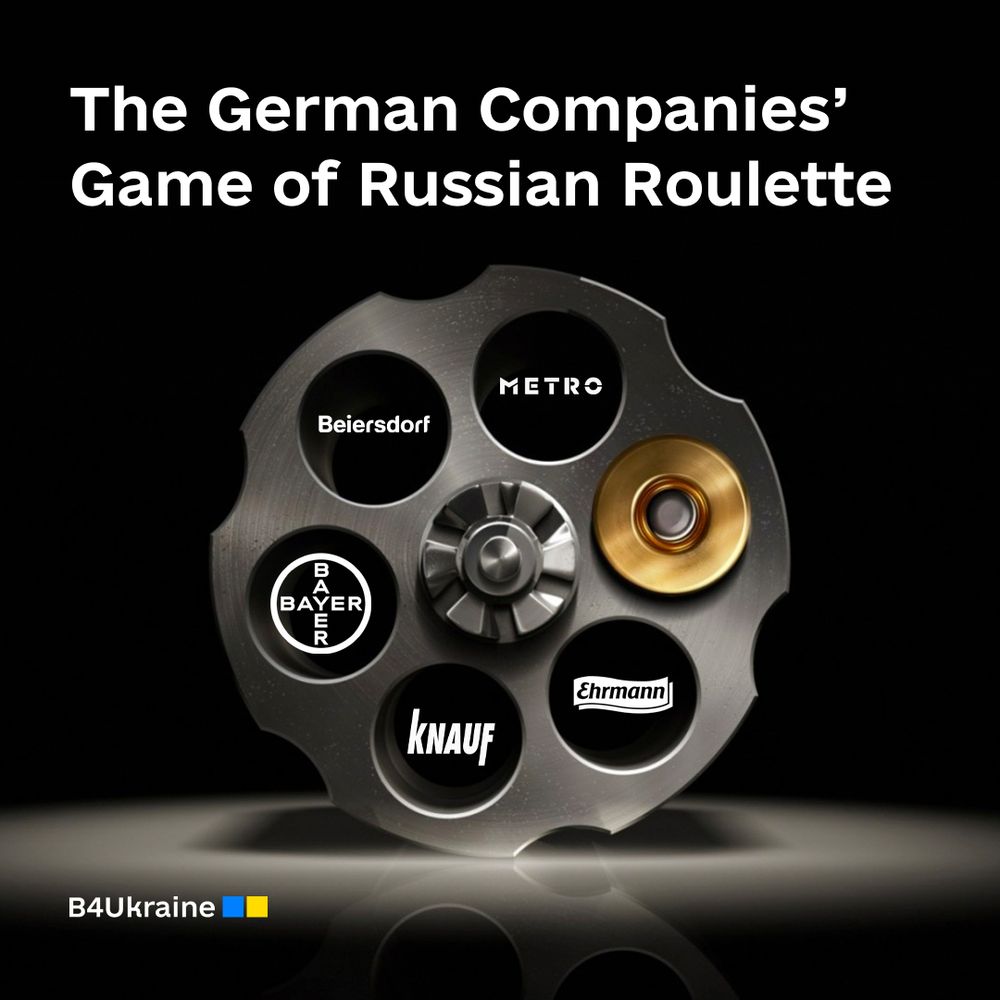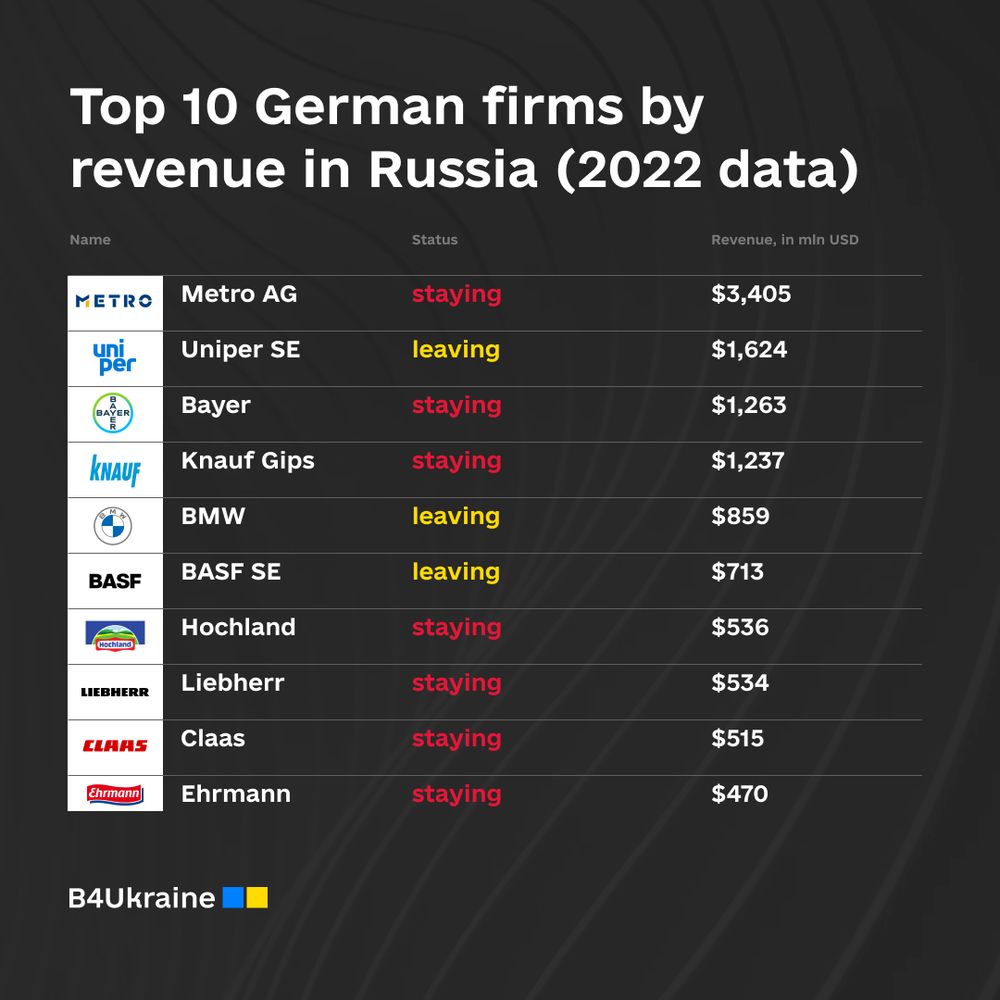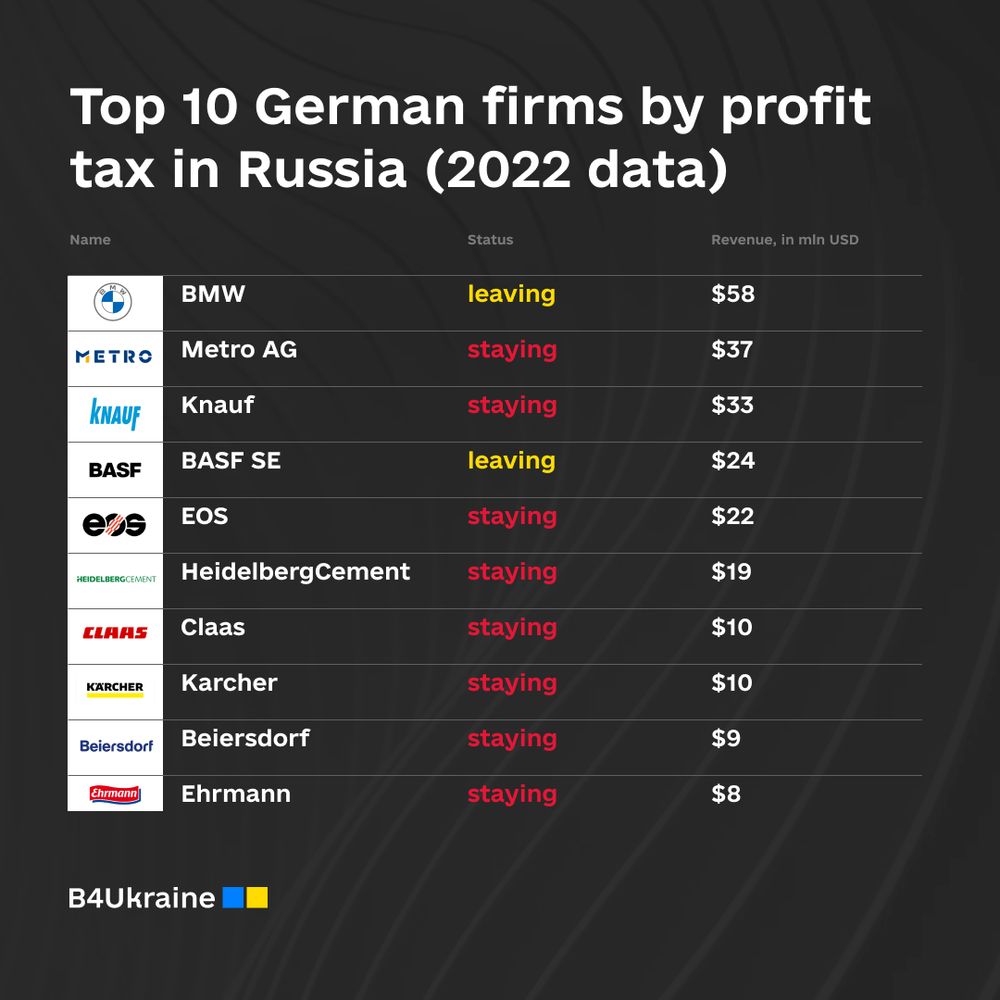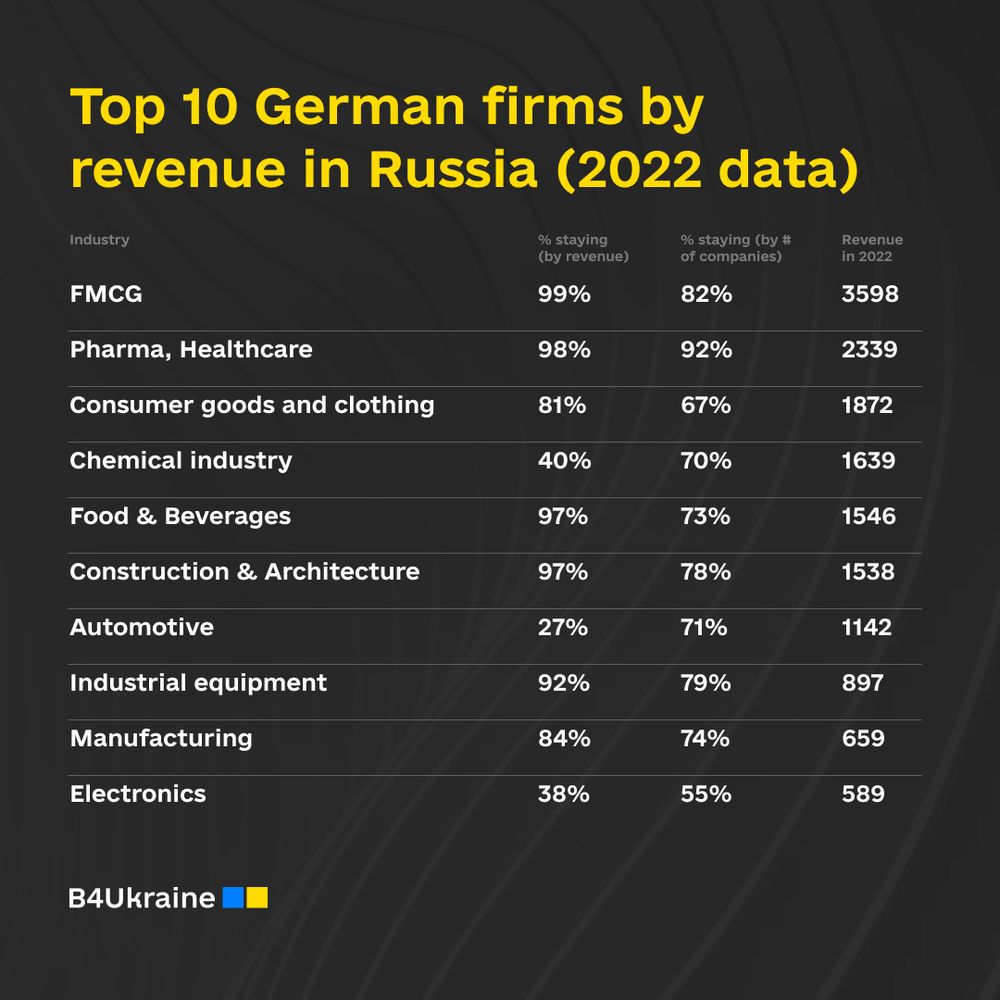
Russia’s unprovoked invasion of Ukraine has not only undermined security and prosperity of its neighbors, but also of wider Europe and the emerging economies. Exacerbated energy costs combined with the risk of stagflation in Europe and a real threat to global food security are all consequences of Russia’s military actions.
As a regional economic and political heavyweight, Germany has undergone the most rapid transformation in terms of reducing its long-term dependency on cheap Russian energy and emerging as a key enabler of Ukraine’s victory.
But the tremendous support of almost 21 billion euros in combined military, humanitarian and financial assistance provided by the German state and its taxpayers is being significantly undermined by the actions of hundreds of German companies and their leadership.
In addition to remaining the second largest exporter of goods to Russia after China, German companies are the first in Europe as a country of origin of sensitive goods delivered to Russia, benefiting the aggressor’s military and industrial complex and thus prolonging the war.
The most obvious picture, however, concerns Germany’s continued corporate presence in Russia, 19 months since the full scale invasion of Ukraine and 9 years since the illegal annexation of Crimea and Donbas.
As of September 2023, 67% of 393 German companies which had ties to Russia at the start of 2022, continue to do business in the country, according to the B4Ukraine Coalition and KSE Institute.
Only 8% of German firms had exited completely by selling or liquidation of business, and 25% are in the process of leaving the Russian market.
Of the ten German companies with the highest revenues in Russia in 2022, only three — Uniper, BMW, and BASF — are pulling out from the country.
German companies paid a total of more than $402 million in profit taxes in Russia in 2022.
B4Ukraine member Nataliya Popovych said in a comment to Süddeutsche Zeitung: “Despite the German government and people have so far supported Ukraine with $20 billion in military, humanitarian and financial aid, too many German companies are undermining this support and helping sustain this war of aggression through their continued operations in Russia.”
The trade and retail giant Metro, the chemical and pharmaceutical company Bayer, and the building materials manufacturer Knauf keep operating in Russia under different justifications.
B4Ukraine asked 140 international companies, including German ones, about their motives for staying in Russia and examined them. “We heard a variety of justifications, some of which sounded like excuses,” said Bennett Freeman, former Senior VP for Sustainability Research and Policy at Calvert Investments and member of B4Ukraine steering committee. Although there are indeed real difficulties, he is convinced: “A responsible exit from Russia is not only desirable but possible.”
Fast-moving consumer goods companies (FMCGs) such as Metro AG, Beiersdorf, Mondelez International or Unilever often argue that they are providing essential goods or services to the Russian population. “We acknowledge that there are some essential, life-saving medications,” Freeman said. “But pharmaceutical companies would then also have to document this. The argument is often pretextual. But there are also cynical examples when it comes to sweets. There should be binding definitions of what counts as essential goods and services in the context of the Russia-Ukraine war.”
As the B4Ukraine’s recent study shows, companies’ concern for local employees is too often used as a justification to remain, especially considering the realities of Russia’s Partial Mobilization Law. A number of companies have already demonstrated that it is possible to leave Russia and make arrangements for their employees. The claim that a departure would only benefit the Russian state is also less convincing. On the contrary, by staying in Russia, Western companies run a high risk of becoming involved in the Russian war machine and other criminal activities such as money laundering, financing international terrorism, as well as organized and cybercrime.
The B4Ukraine Coalition has been calling on the G7 governments, including Germany, to issue business advisories to their companies with continued Russia operations, highlighting a plethora of legal, financial, reputational and human rights risks associated with continued business operations in Russia. Otherwise, western firms risk facing the consequences of having played Russian roulette, while simultaneously undermining the efforts of their governments and people.


